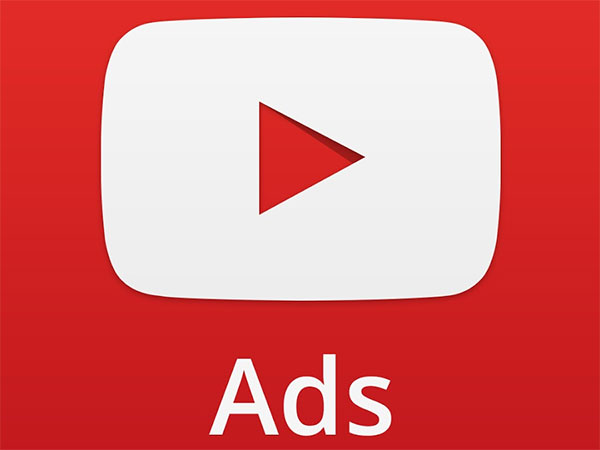Google revamps ad policies after complaints from governments, brands
 |
These moves come after an investigation by the Times of London news website found that ads from the UK government and some prominent companies were appearing alongside YouTube videos that incited hate or promoted American white nationalism and homophobia. One screenshot, for example, showed a BBC advertisement on a YouTube video by extremist group National Rebirth of Poland.
The UK government and major brands, such as the Guardian newspaper or L'Oreal, then pulled their ads from YouTube, which is owned by Google, as their ads ran alongside videos of white nationalists and anti-Semites, according to the Financial Times. “It is totally unacceptable that taxpayer-funded advertising,” which apparently benefited extremist groups, “has appeared next to inappropriate internet content,” a UK government spokesperson said.
In response, Google UK managing director Ronan Harris wrote in a blog post that Google had strict policies to “prohibit ads from appearing on pages or videos with hate speech, gory or offensive content.” Google/YouTube receives 200,000 flags of questionable content a day, and 98 per cent of these were reviewed in less than 24 hours, as reported by the Financial Times.
“However, with millions of sites in our network and 400 hours of video uploaded to YouTube every minute, we recognise that we do not always get it right,” the blog post added.
“Recently, we had a number of cases where brands' ads appeared on content that was not aligned with their values. For this, we deeply apologise,” Google chief business officer Philipp Schindler wrote in another post. “So starting today, we're taking a tougher stance on hateful, offensive and derogatory content.”
One measure will be to raise the bar on which videos are considered safe to place ads. Another measure is to allow brands to fine-tune where they want their ads to appear and to exclude certain types of content.
Previously, YouTube was also the subject of complaints in Vietnam related to its content.
In early March, several Vietnamese companies stopped advertising on YouTube, after the country's Ministry of Information and Communication found their ads appearing on 17 YouTube videos that, according to the ministry, featured “toxic content that violated Vietnamese law” and “damaged these brands' reputation.” The Ministry also summoned involved enterprises for an explanation and asked them to pull their ads from these videos.
At a meeting with Minister of Information and Communication Truong Minh Tuan, these companies, including Vinamilk, Sun Group, Unilever Vietnam, and Vietnam Airlines, said they would suspend any further advertising on YouTube until Google can solve the situation entirely, according to the ministry website.
Advertisements of popular brands in Vietnam (including Vaseline, Comfort (Unilever), Pampers, Ariel (Proctor & Gamble), Sendo (FPT), Yamaha, among others) are also displayed, as previously reported by VIR.
| As of March 23, US telecom giants Verizon and AT&T have joined the list of big companies shunning Youtube ads. The list includes retailers Marks & Spencer and Tesco, as well as advertising company Havas Group UK, which decided to halt all advertisement spending on Google and YouTube on behalf of its UK clients, which include O2, Royal Mail, BBC, Dominos, and Hyundai Kia. |
In a statement, YouTube reiterated that it had a formal process for this matter. It said, “We have clear policies for removal requests from governments around the world. We rely on governments to notify us of content that they believe is illegal through official processes, and where appropriate, will restrict it after a thorough review. All these requests will go into our Transparency Report.”
Google's Transparency Report discloses the number of requests from copyright owners and governments to remove information from its services. On the report's website, data from 2010 through 2015 showed that Google declined all requests made by the Vietnamese government to remove content.
However, this time, Google has so far removed 16 videos at the government's behest, according to Reuters news agency.
Companies do not control which specific videos would feature their ads but only select the age range and location of targeted customers, according to YouTube. A computer algorithm then places ads in videos that fit the criteria.
Nguyen Khoa Hong Thanh, operations director at digital marketing agency Isobar Vietnam, told BBC Vietnam that Google and Facebook now hold 70 per cent of the digital ad market with a large proportion of Internet users. Without access to Google, businesses will lose a key channel to reach customers.
What the stars mean:
★ Poor ★ ★ Promising ★★★ Good ★★★★ Very good ★★★★★ Exceptional
Latest News
More News
- Rising consumption and travel fuel ‘Tet season’ stocks (February 11, 2026 | 11:43)
- Education as strategic capital: why Dwight School Hanoi represents a long-term investment in Vietnam’s future (February 10, 2026 | 19:00)
- Green logistics–the vital link in the global energy transition (February 09, 2026 | 19:35)
- Wages and Lunar New Year bonuses on the rise (February 09, 2026 | 17:47)
- Temporary relief for food imports as businesses urge overhaul of regulations (February 07, 2026 | 09:00)
- Opella and Long Chau join forces to enhance digestive and bone health (February 06, 2026 | 18:00)
- Vietnam-South Africa strategic partnership boosts business links (February 06, 2026 | 13:28)
- Sun PhuQuoc Airways secures AJW Group support for fleet operations (February 06, 2026 | 13:23)
- Pegasus Tech Ventures steps up Vietnam focus (February 05, 2026 | 17:25)
- The generics industry: unlocking new growth drivers (February 04, 2026 | 17:39)
















 Mobile Version
Mobile Version